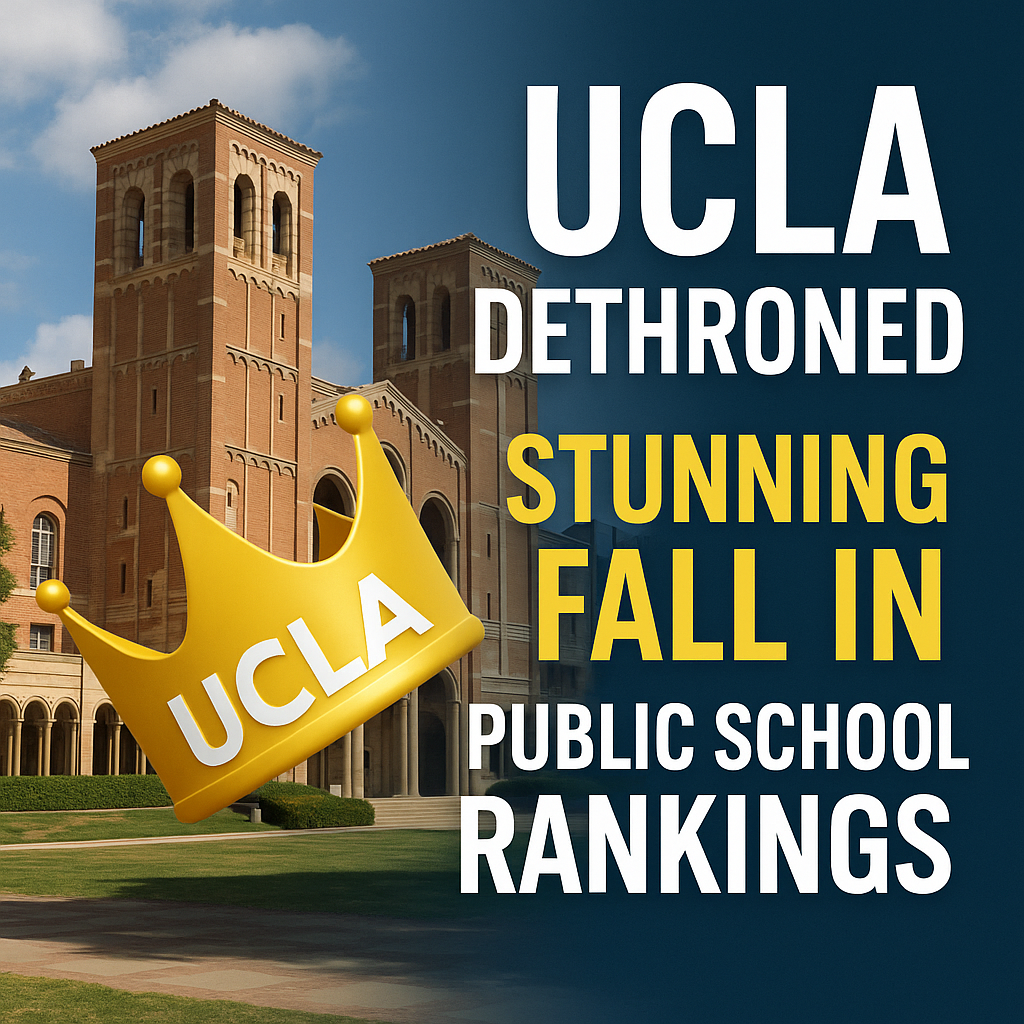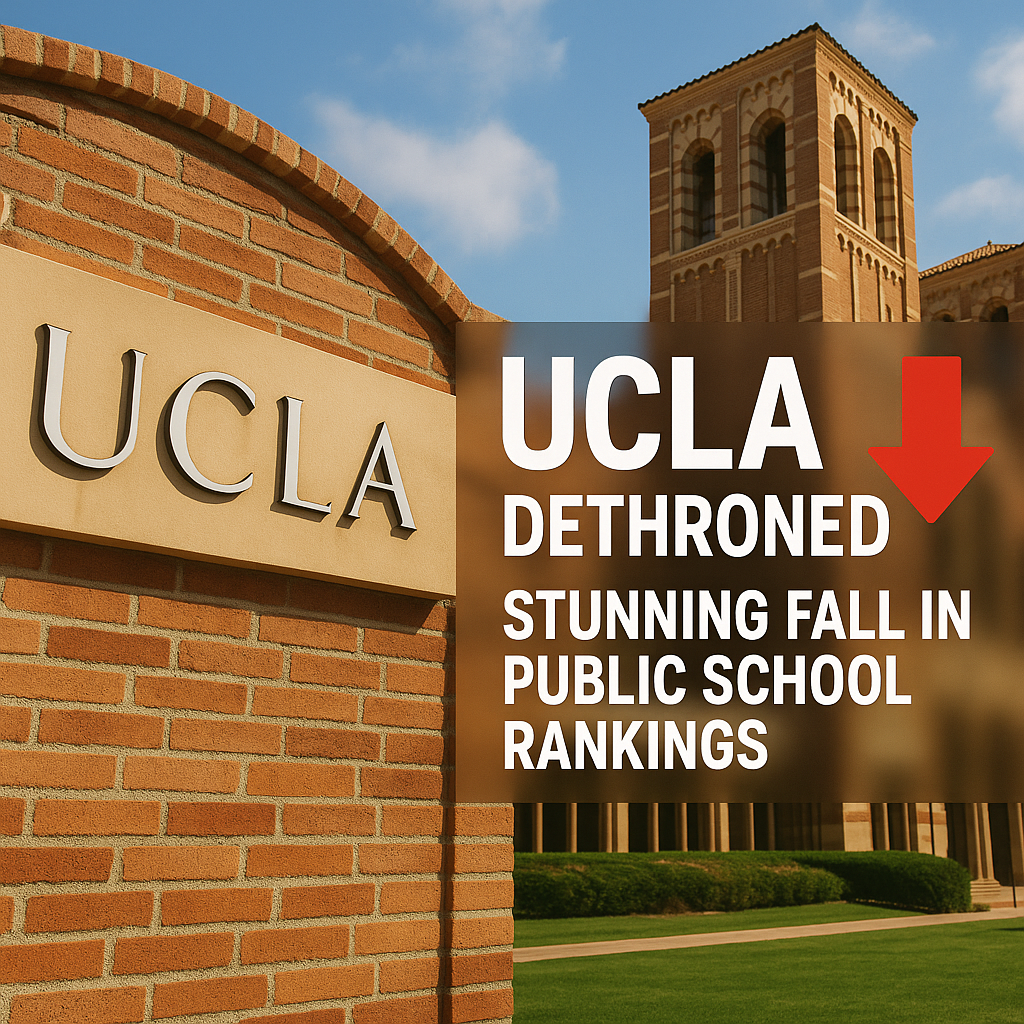UCLA Dethroned: Stunning Fall in Public School Rankings
UCLA Dethroned: Stunning Fall in Public School Rankings
UCLA dethroned from its long-held position at the top of public school rankings highlights not just a specific institutional shift but also broader trends affecting public education in California and across the nation. This dramatic fall from grace raises questions about the factors influencing educational quality and reputation, as well as the future of public institutions that once enjoyed unwavering prestige.
The Factors Behind UCLA’s Ranking Drop

UCLA’s decline in public school rankings can be attributed to a multitude of factors. Historically, UCLA has been recognized as a leader among public universities, consistently acclaimed for its academic programs, research output, and overall student experience. However, recent evaluations reflect a more complex reality, paving the way for this stunning shift.
A thorough review of the recent statistics and reports displayed a mix of consensus and contrasting evaluations among critics and supporters. According to SFGate, UCLA’s drop can be linked to increasing competition from other universities that have improved their academic offerings and global standing. Schools like the University of Florida and the University of Michigan have invested significantly in programs, campus facilities, and student resources, effectively attracting high-caliber students away from UCLA.
Moreover, factors like rising tuition costs and the challenges faced during the COVID-19 pandemic have contributed to student dissatisfaction. A report from the Mercury News underscored how these challenges can adversely affect university experiences, resulting in a decline in ratings and rankings. For example, UCLA witnessed a drop in its graduation rate and student satisfaction scores, both critical metrics influencing rankings.
Student Feedback and Institutional Responses
One of the most revealing aspects of this ranking decline is the feedback from current and former students. Many alumni have expressed concern regarding increased class sizes, reduced faculty support, and dwindling mental health resources. Some feel that UCLA has shifted its focus from student needs to institutional prestige, which may alienate its student body. This sentiment is echoed in dialogues on various platforms where students have shared their experiences, highlighting a perceived disconnect between administration efforts and actual student welfare.
In response to these feedback trends, UCLA leadership has acknowledged the need for improvements. Initiatives aimed at boosting mental health services, enhancing academic advising, and refining the curriculum are being explored. The university may also need to reconsider how it allocates resources, ensuring more balance between attracting new students and supporting current enrollees.
Future Prospects for Public Institutions
The shifting of rankings, particularly the dethroning of a giant like UCLA, invites a larger conversation about the future landscape of public education. As institutions compete not merely for student enrollment but for reputation and quality, what does this mean for students and parents seeking the best educational opportunities?
It’s essential to weigh the contrasting sentiments on how rankings influence educational choice. While some argue that rankings serve as useful indicators for quality, others caution that they can overlook factors that truly enrich student experiences. Many believe that mere numbers do not adequately reflect the diverse offerings of educational institutions, including research opportunities, extracurricular activities, and community engagement.
Furthermore, the rise of alternative educational models, such as online education and community colleges, may gain traction as families reassess the value proposition of traditional public universities. As noted in discussions across various platforms, the traditional path is shifting, necessitating a reevaluation of what it means for a university to be ‘the best.’
Conclusion: A Reflection on Quality and Reputation
UCLA’s fall from its established rank resonates beyond the institution itself; it serves as a case study for public education as a whole. The nuanced landscape of education today asks us to consider the interplay of rankings, student experiences, and institutional responsibilities.
While the University of California system retains a robust reputation, the challenges faced by UCLA are indicative of a systemic need for adaptation and growth within public education. As prospective students and parents continue to evaluate their options, encouraging dialogues around quality, costs, and overall student satisfaction will become increasingly essential.
In this context, schools must not only strive to retain their prestige but also ensure they meet the evolving needs of their communities. The emphasis should not solely be on where the institution stands in rankings but rather on the intrinsic value and future readiness it offers its students.








